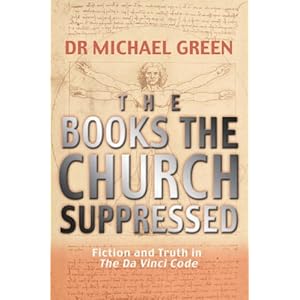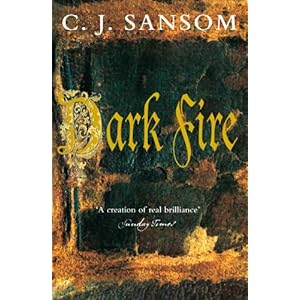How can a young man find his wife? How should a Christian single guy go about finding his wife? Or if you’re a single Christian lady, what should you look for in your prospective husband? These days there are lots of options - speed dating, dating websites, newspaper ads, fellowship groups, holidays etc. Sometimes you find that Bible passages are pressed into ten tips for finding your wife - maybe even tonight’s passage. Jacob is looking for a wife here, but his experience may not be very helpful as we seek to apply it - the passage isn’t designed to help us find a wife, rather it points us to our great God working out his great promises.
As we come to Genesis 29 tonight, we need to see our chapter in the immediate context of Genesis 28. There, we found two things working together to send Jacob out on this lonely journey. First, Isaac commands him to go to Paddan-Aram, to his far out family to take a wife from the daughters of Laban his uncle (28:2), and second, God’s promise that God will be with him on his journey. The question is will it all work out? And how will it all work out?
Tonight we’ll look at our verses under two connected headings: ‘God works out his promise as Jacob finds his family and forms his family - despite the deception.’ Section 1, therefore is verses 1-14. God works out his promise as Jacob finds his family.
You see, as Jacob is sent out on his journey in chapter 28, he has never been this way before. He doesn’t know where he is going, and has never seen his extended family before. In our day of cheap flights and package holidays, the world seems very small - you can even research foreign places before you go via the internet. But for Jacob, he’s following the trail through desert lands, not knowing where he is going. Yet God is with him.
So watch in these verses as Jacob arrives at this well, and the conversation unfolds. It’s almost like a checklist being ticked off with each answer - the men are from Haran (my family is from Haran!); they know Laban (he’s my uncle!); and then Rachel, his daughter is coming out to the well! As if you have missed this already, look at verse 10 - three times it goes through the repetition of ‘Laban his mother’s brother.’
No wonder Jacob has this slightly strange greeting of bursting into tears, weeping after he kisses Rachel, his cousin. Jacob has journeyed for about 600 miles, walking, alone - no buses or easyjet - and he has arrived! God has brought him to the very place he needed to be. This first section reaches its climax in verse 14 as Laban exclaims ‘Surely you are my bone and my flesh!’
God works out his promise as Jacob finds his family. Read carefully through these verses, and you’ll find that God is not mentioned. You might think that’s a bit odd - and yet isn’t it how God can often seem to work, behind the scenes, in ‘ordinary’ life, accomplishing his purposes without a big fuss? You may have had a dramatic conversion, but the normal Christian life is about living for God and trusting him in the big and the small, knowing that he is with you, even when it doesn’t seem like it.
We may only realise it sometimes as we look back, and see how God has been shaping our life, guiding us to the place he wants us to be.
Can you see how God is shaping your life and guiding you? It may not be in the big and dramatic things, but just having a quiet confidence that God is working out his promises and purposes in the day to day. Your life may not be exciting - you may not be a lion tamer, or a bungee jumper, or lead six people to Christ every day before breakfast - but God is continuing to work out his promises in our daily life. Can you trust him with each ordinary day?
Jacob was profoundly alone - far from his home, far away from the promised land, almost in exile, as it were - yet God is with him. That same God has promised that he is with us, his people, bringing us on, leading us home. ‘I will never leave you nor forsake you.’
Our second point comes from verses 15-30. Having found his family, Jacob’s task is now to form his own family, to take a wife and begin to pass the blessing on by having children of his own. Our point: God works out his promise as Jacob forms his family - despite the deception.
We’ve already met Rachel briefly, but now we’re introduced to the two daughters of Laban - it’s like the final in one of those TV competitions - ‘Who should Jacob take as his wife? Add 01 for Leah or 02 for Rachel.’ Jacob knows which one he wants, and so he agrees to work for Laban for seven years to obtain her hand in marriage. If you scan these verses, you notice that several times there is mention that Jacob loves Rachel, so that the seven years passed very quickly. A seven year engagement - I’m not sure what the reaction would be if we were to insist on that for our wedding preparation couples. But after the wedding, there’s a nasty surprise for Jacob (the deceiver).
In order to help us understand this, though, we need to grasp how weddings were done at this time. The way we think of weddings, with the bride arriving (hopefully not too late) at the church, and the service and vows, and meal and reception - there’s just no way that Jacob could have been tricked in our day. But it’s not what happened here. It appears that there was a feast, and then the couple would retire to the honeymoon suite in the dark and consummate their marriage.
After seven long years of labour, Jacob is ready to enjoy his wife Rachel - but the next morning as he wakes, he finds the wrong sister beside him in bed! Laban had sent Leah in and kept Rachel back. When Jacob protests, Laban makes the excuse of giving the eldest daughter first in marriage - but then promises Rachel’s hand in marriage at the end of the week’s celebration of Leah’s wedding. Two weddings in one week - enough for any parents of sisters to panic!
So what is this all about? How do we understand these goings on, and should we seek to do the same? Let’s be clear that often times, the Biblical accounts are descriptive, rather than prescriptive. The Bible tells us what happened, but doesn’t report it favourably. So to take two wives - that isn’t a good thing, after all, Genesis 2, right at the beginning, a creation ordinance reveals marriage to be about one flesh - one man, one woman, in lifelong union. Jacob is failing to uphold that there - his desire for Rachel controlling his actions.
Remember what Isaac commanded? ‘Take as your wife from there one of the daughters of Laban your mother’s brother.’ (28:2) Yet he has taken them both! Jacob is running away with his desires, his greed rather than trusting God. You see, while the rest of Genesis will focus primarily on the son that comes from Rachel (Joseph) - in actual fact the son that will continue the line of promise to the serpent crusher, the king, the messiah comes not from Rachel, but from Leah. For Messiah to come, the union with Leah was enough.
What Jacob wants may not be what God wants. He was carried away by his desire. Isn’t this the very essence of sin - to demand things for ourselves no matter what God says? Take a moment and consider - are there things that I am devoting my life to which are not God’s best for me? Have I been taken in by something, captivated by it, which distracts me from loving God? It could be any number of things - each of us probably different - what is it that you’re pursuing rather than God? (Why settle for good enough when you can have the best?)
Even through this deception, though, God is working out his promise, as Jacob forms his family. Each week in staff meeting, we spend half an hour or so studying each passage that will be preached on the Sunday. As we were thinking about Genesis this week, we realised that the past three weeks and again tonight, we’re saying that God continues his purposes or works out his promises despite sin - in previous weeks it was Isaac’s sin, or Jacob’s sin. Yet here, it’s sin against Jacob in the first place (which he then acts on and uses). It’s the consistent message of this section of Genesis - God working out his promise despite our sin.
Even through this deception, God is working out his promise, as Jacob forms his family. As we’ll see next time, these wives will bring forth the children of Israel who will be the fathers of the twelve tribes. Even through the trickery of Laban, God is working out his promise to bring about the next generation of the covenant people.
But more than that - do you remember the promise to Abraham? Time and time again, God promised Abraham that he would be the father of a multitude, his descendants would be in number like the stars or the sand. Yet we haven’t seen that yet - Abraham had Isaac, Isaac had Esau and Jacob - but now, even as Jacob takes these two wives, the people of God are being enlarged. God’s promise is beginning to be fulfilled as the shape and scope of the people of God begins to come together.
God’s plan has not changed through the coming of the Lord Jesus, all these generations later. God is still enlarging the people of God, calling his chosen people, building the church to this day. This in the midst of difficult circumstances - persecution, opposition, suffering, deception. It takes the pressure off when we realise that it’s not us that will bring people to faith - that’s God’s job - and as we realise that, we can get on with labouring for the Lord, being faithful in proclaiming the word and letting God the Holy Spirit do the work of conviction and conversion. Not even our sin, or the sin of others against us will prevent God’s promise of blessing from being fulfilled.
We know this, because the Lord Jesus took our sin upon him, the great exchange, so that God punishes him and we obtain the blessing of obedience. It’s why the New Testament repeatedly calls us to suffer and endure, because not even the sin of others can divert or prevent the blessing that God has promised for us. It’s why Jesus said not to fear those who can only kill the body - at the worst, they can kill us, but they cannot stop the hope that is in us, they cannot remove us from the Lamb’s book of life, they cannot stop us receiving the promised inheritance.
When God has promised to bless, he will do it. There are so many places in the New Testament that we could turn to illustrate this as we finish. Allow me to turn to Romans 8, and glory in the certainty of God’s promise to us:
‘For I am sure that neither death nor life, nor angels nor rulers, nor things present nor things to come, nor powers, nor height nor depth, nor anything else in all creation, will be able to separate us from the love of God in Christ Jesus our Lord.’ (Rom 8:38-39). Nothing can prevent God from fulfilling his plans and promises! He leads us on and is always with us - just as Jacob learned that God works out his promise as Jacob found his family; God will bring us to his glory so that we receive the promise, no matter what we have done or what is done to us, just as Jacob learned as God works out his promise as Jacob formed his family.
This sermon was preached in St Elizabeth's Church, Dundonald on Sunday 16th May 2010.







